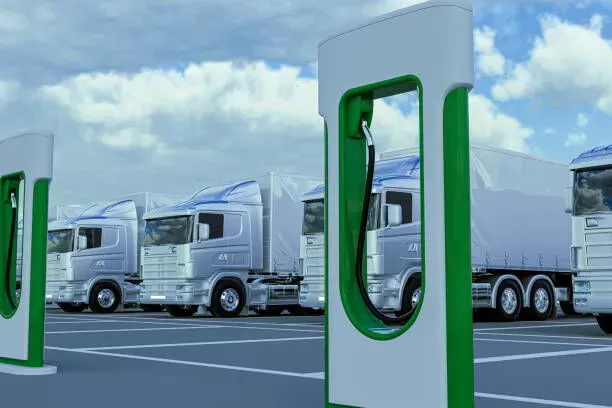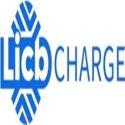Notifications

10 minutes, 30 seconds
-7 Views 0 Comments 0 Likes 0 Reviews

As one of leading EV chargers manufacturer in China, LiCB Charge offers reliable AC and DC electric vehicle charging stations along with comprehensive charging solutions to meet your needs.
As electric vehicles (EVs) rapidly gain popularity, businesses worldwide are turning to more sustainable transportation solutions. For companies managing multiple vehicles, EV fleet charging has become a crucial aspect of maintaining an eco-friendly and efficient operation. But what is EV fleet charging, and why is it gaining so much attention? In this article, we’ll dive into the concept of EV fleet charging, its benefits, available solutions, and key considerations when setting up a fleet charging system.
EV fleet charging refers to the process of recharging a fleet of electric vehicles owned or operated by a company or organization. These fleets can include anything from delivery trucks and buses to ride-sharing cars and service vehicles. The goal is to ensure that the entire fleet remains operational while minimizing downtime and maintaining efficiency through effective and cost-conscious charging solutions.
Unlike personal EV charging, fleet charging involves a more strategic approach. It takes into account vehicle usage, charging speed, energy demand, and the infrastructure setup. The primary objective is to ensure that all vehicles are adequately charged and ready for use, optimizing fleet performance and minimizing operational disruptions.
Switching to electric vehicle fleets offers numerous benefits, not only for businesses but also for the environment. Below, we explore the key advantages of EV fleet charging:
The economic benefits of transitioning to electric fleets are significant. While electric vehicles may have a higher upfront cost compared to traditional vehicles, the long-term savings make up for the initial investment. EVs generally have lower fuel costs since electricity is more affordable than gasoline or diesel. Additionally, they require less maintenance, leading to lower repair costs and reduced vehicle downtime.
Fleet operators can also take advantage of government incentives, tax breaks, and rebates for adopting electric vehicles and installing charging infrastructure, which further lowers the total cost of ownership.
The environmental impact is one of the strongest driving forces behind the adoption of EV fleets. By switching to electric vehicles, companies can drastically reduce greenhouse gas emissions, helping them meet sustainability targets and contribute to cleaner air. EVs produce zero tailpipe emissions, which is particularly beneficial for businesses operating in urban areas with high pollution levels.
When paired with renewable energy sources like solar or wind power, EV fleet charging becomes even more environmentally friendly, creating a fully sustainable transportation system.
EV fleet charging also brings operational efficiency. Electric vehicles are quieter and provide a smoother driving experience, improving overall productivity and reducing noise pollution in urban environments. Fleet managers can optimize energy costs by scheduling charging during off-peak hours, ensuring vehicles are ready when needed.
Moreover, many fleet management systems offer real-time monitoring of vehicle battery levels and performance. This data-driven approach helps optimize routes, manage charging schedules, and improve overall fleet efficiency.
To effectively support EV fleets, businesses require reliable and scalable charging solutions. Below are several types of chargers that cater to different fleet needs:
Alternating Current (AC) chargers are ideal for overnight or long-duration charging. While these chargers provide slower charging speeds, they are perfect for fleets that can charge vehicles during non-operational hours, such as overnight.
Direct Current (DC) fast chargers offer rapid charging speeds and are ideal for fleets that require quick turnarounds. These chargers can recharge a vehicle’s battery to 80% in as little as 30 minutes, making them an excellent choice for delivery services or emergency vehicles.
Smart chargers provide fleet managers with the ability to remotely control and monitor charging activities. These systems allow for load balancing, ensuring energy is distributed efficiently across multiple vehicles. Smart chargers can also optimize charging schedules based on energy rates and demand, further enhancing cost efficiency.
The right solution depends on the fleet size, vehicle usage, and the available charging infrastructure.
Before setting up an EV fleet charging system, businesses must consider several factors to ensure smooth operations and cost efficiency. Here are some essential considerations:
The first step in implementing an effective fleet charging system is assessing the charging needs of each vehicle. Factors such as the vehicle’s driving range, daily mileage, and operational hours must be considered. For example, vehicles that travel long distances daily will need more frequent and faster charging than those used for short-range operations. Understanding these requirements will help determine the necessary type and number of chargers.
Selecting the appropriate charging equipment is vital for the smooth running of fleet operations. AC chargers are typically more affordable and suitable for overnight charging, while DC fast chargers are more appropriate for vehicles with shorter downtimes. It’s also essential to ensure compatibility with the vehicle’s charging ports and consider the scalability of the infrastructure as the fleet grows.
Strategically placing charging stations is crucial for maximizing fleet efficiency. Chargers should be located in areas where vehicles spend the most time idle, such as fleet depots or loading docks. This reduces downtime and ensures vehicles are charged while not in use. For fleets that operate in multiple regions, placing chargers along key routes or near common destinations can help maintain seamless operations.
Implementing a fleet charging system is just the beginning. To fully optimize the benefits of EV fleet charging, consider the following tips:
By adopting EV technology early, companies can gain a competitive edge, capitalize on government incentives, and enjoy long-term savings. Early adoption allows businesses to familiarize themselves with the technology and infrastructure, ensuring a smoother transition as the fleet expands.
Regularly tracking the state of charge (SOC) of each vehicle is critical to avoid unexpected downtime. Fleet managers can use EV management software to monitor battery levels in real-time, ensuring vehicles are charged and ready when needed. This also helps extend battery life by preventing overcharging.
Many EV charging systems offer notifications to keep fleet managers informed about charging statuses, potential issues, and maintenance needs. These alerts help optimize scheduling and prevent delays due to undercharged vehicles.
Understanding the driving range of each vehicle is essential for route planning and managing charging schedules. Fleet managers should account for factors such as weather conditions, load capacity, and driving habits, as these can impact range. By knowing the exact range, managers can optimize routes and avoid unnecessary stops.
Electric vehicle fleet charging is a game-changer for businesses looking to operate more sustainably and efficiently. With the right charging infrastructure in place, fleet operators can reduce costs, minimize environmental impact, and improve operational performance. By evaluating charging requirements, choosing the right equipment, and strategically optimizing charging locations, businesses can unlock the full potential of EV fleets.
As more companies transition to electric fleets, understanding the key considerations for setting up an EV fleet charging system is crucial for success. Early adoption, real-time monitoring, and optimized charging strategies will help businesses stay ahead of the curve and gain a competitive edge in the evolving transportation landscape.Know more about Google SEO Directory
China EV Chargers EV Charger Manufacturer Smart EV Chargers Electric Car Chargers Electric Vehicle Chargers Electric Car Charging Stations
